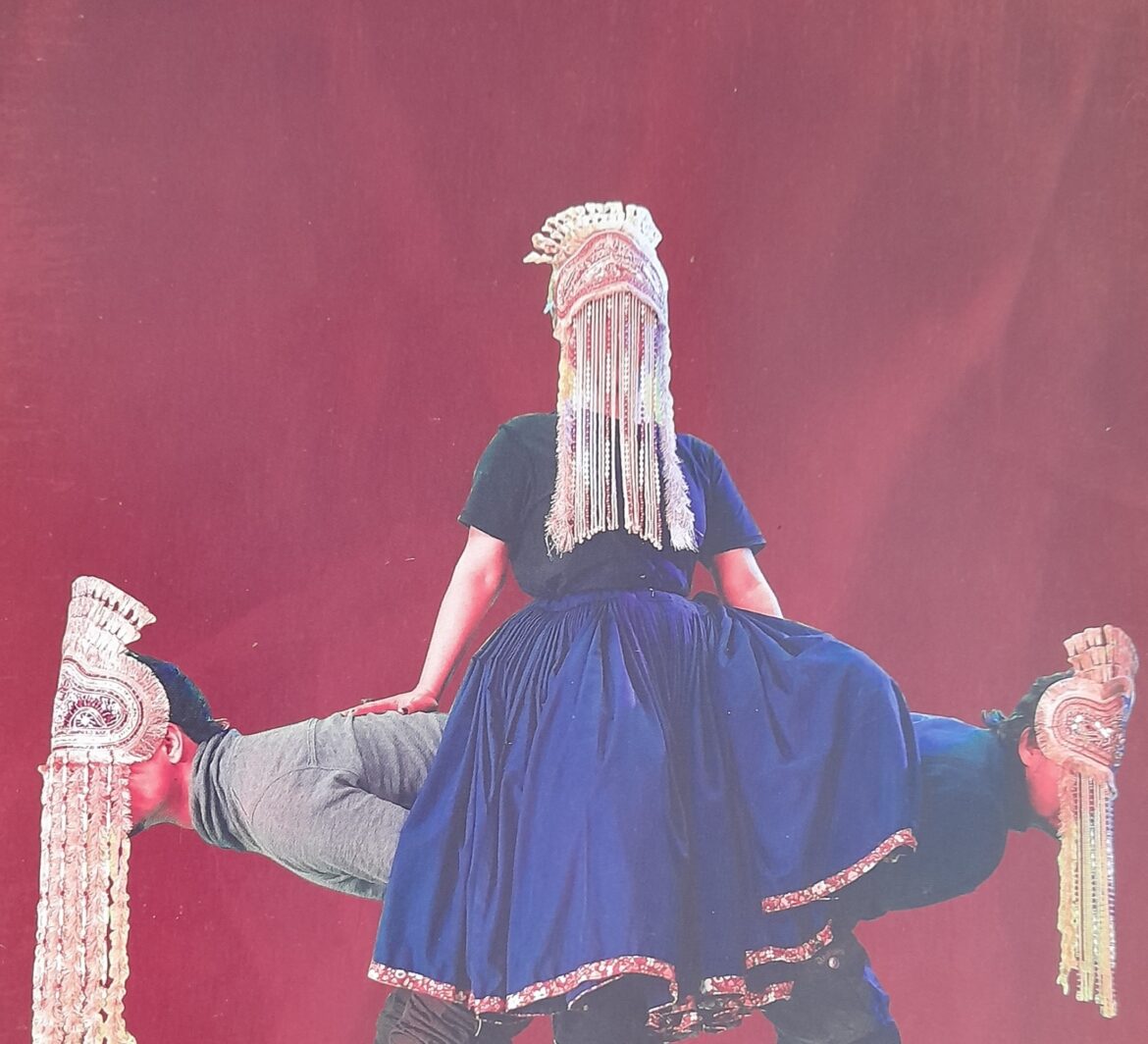The Complete Human:
For its sixth season, Aadyam has looked outside Mumbai and invited Chandigarh-based Neelam Man Singh Chowdhry to direct a Hindi version of Hayavadana, Girish Karnad’s play, produced by Bangalore’s Bhoomija Trust, with scenography by Deepan Sivaraman, music by BV Karanth and Amod Bhatt with actors from various regions. A melting pot of cultural diversity that can only add richness to any theatre endeavour.
Some of Neelam Man Singh Chowdhry’s plays, like Yerma, Kitchen Katha,The Last Tale, and more recently Truck Tales have been staged in Mumbai, and audiences have been struck by her fine aesthetic sense and control of stagecraft. Mumbai theatre groups are, more often than not, hampered by shortage of resources, rehearsal time is curtailed by actors busy with shooting; the lay audiences too, after paying high ticket prices, look for an entertaining evening out.
Freed from these constraints, and an arsenal of fine actors on call, Chowdhry is able to launch a lavish production of Hayavadana. In these times of unbridled vanity, the play with its central conceit of mind vs body could have a certain relevance, though Karnad’s 1971 play, inspired by The Transposed Heads, Thomas Mann’s reworking of a Sanskrit tale, from the Kathasaritsagara, was treated as a fable.
The curtain parts to show a truck parked on stage, on top of which are precariously perched the singers, who perform live in robust voices. The traditional Ganesh vandana is particularly apt here, because the elephant-headed deity, he of the transposed head, is entrenched in Indian culture.
Bhagvat, the narrator (Puneet Kumar Mishra) then proceeds to interact with Hayavadana, a creature that is half man-half horse (like the Greek Centaur), with his own back story on how that came to pass. He now wants to become ‘complete’ and Bhagvat directs him to the temple of Goddess Kali.
The main story is that of two close pals, the brainy Devdutt (Ajeet Singh Palawat) and the brawny Kapil (Mahesh Saini), besotted by the Padmini (played inexplicably by two actresses, who are on stage at the same time—Brinda Trivedi and Ipshita Chakraborty Singh). Kapil gets her married to Devdutt, and accepts the role of devoted friend.
When they are on an outing, and Kapil fulfills every whim of a pregnant Padmini, Devdutt remembers his vow to Goddess Kali, and chops his head off. In shock and grief Kapil does the same. When an anguished Padmini invokes the Goddess (Pallavi Vijay Jadhao), she tells her to place the heads back on the bodies, so that she can bring them back to life. In a confused state, Padmini exchanges heads, and then arises the dilemma—who is her husband? The mind or the body?
It is a deliciously complex situation—but Padmini gets the man with Devdutt’s head and Kapil’s body, which from the woman’s point of view is the ideal man. But who is the father of her child, since he was fathered by Devdutt’s body. Over time, when Devdutt neglects Kapil’s body, and Kapil, living in the forest, builds up Devdutt’s physique, Padmini’s desire for him is awakened.
Karnad used the story with a story format and peppered the play with playful elements like masks and talking dolls. Chowdhry picks some of these—the talking dolls are delightful—but in shortening it and making it palatable to a contemporary audience, the balance between pathos and humour seems to have been lost. Karnad’s ending, of course, had to be edited for today—a woman choosing sati would be unacceptable.
Some of the sequences, like the beheading, the appearance of the Goddess, the use of water are so brilliantly handled that the director and scenographer’s work comes together in perfect sync. But, there is also too much fidgeting with costumes (using a minimal and striking black, red, beige palette) and props, that does not really add anything to the play, and just ends up diluting the moment. That truck seems to root the play in a reality (even though it is the vehicle of a travelling troupe) that is in variance with the mythical quality of the story.
The performances by the lead actors are as good as could be expected from trained and seasoned actors. The motive for having two Padminis was ostensibly to present two sides of her personality, but this duality does not come across—like so many women in mythology and folklore, Padmini also has little power over her fate, and is punished for her sexuality.
This production is a master class for theatre makers; those who have read and appreciated the work of Girish Karnad would have much to debate. For a new generation unfamiliar with Karnad plays, this is a kind of introduction. There is a possibility, however, that audiences that fall outside the ambit of this target group, would be baffled by it, even as they admire the scale and beauty of the production.
(This piece first appeared in mumbaitheatreguide.com)

